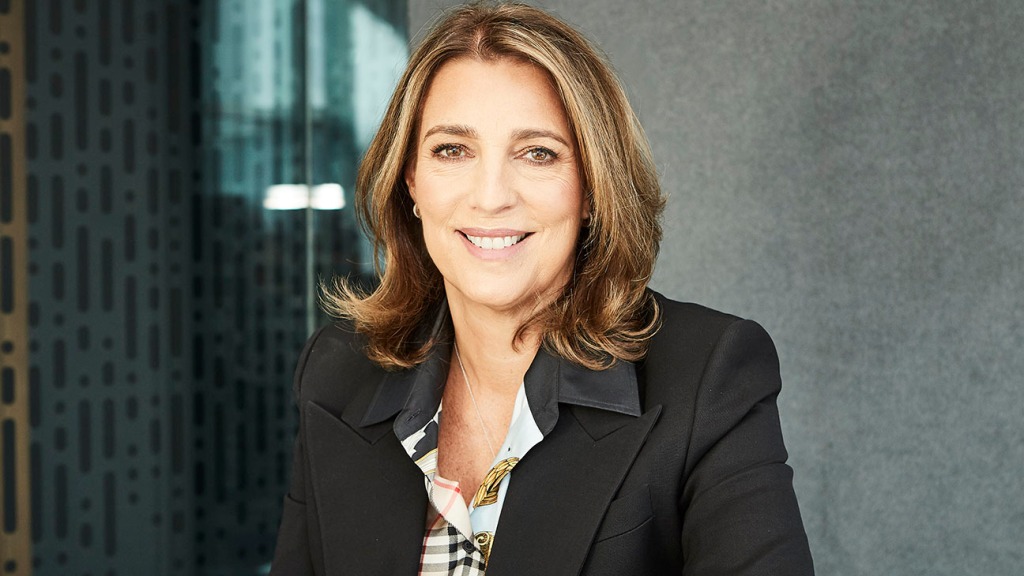
At a time when Hollywood giants are refocusing their streaming businesses amid a growing bullseye on profitability, intense competition and signs of slowing subscriber growth, U.K. TV giant ITV is looking to take its “more than TV” strategy to a new level with Thursday’s launch of ITVX, its new free, advertising-supported streaming service that will replace its ITV Hub.
The company’s positioning and promise for the service is for it to be “the U.K.’s freshest streaming service.” For example, ITVX will offer “more than 10,000 hours” of content, compared with about 4,000 on ITV Hub so far. That includes new originals every week, starting with the likes of six-part Cold War drama A Spy Among Friends, starring Damian Lewis and Guy Pearce, and teen drama Tell Me Everything, and “one of the U.K.’s largest free film libraries” with 250 movies at any one time and around 1,000 available over the year. ITVX will also feature highlights from ITV News in the form of bite-size news updates and key stories of the day, a live section offering livestreams of ITV’s broadcast channels and themed FAST channels. All this is designed to drive engagement by making ITVX more of a destination and a place for discovery.
The acceleration of the company’s push into streaming is designed to double its monthly average users, its U.K. subscribers, its streaming hours and its digital revenue, to £750 million ($915 million), by 2026, management has said. Getting “more eyeballs” for its streaming services, thanks to originals debuting on ITVX, and its content overall is a key part of the formula for success. So is attracting viewers beyond ITV’s traditional audience, for example by offering such programming as anime on ITVX.
Analysts have called ITVX “a step-change” for ITV and its streaming ambitions, but also noted the need for increased upfront investment, which will affect earnings at least over the near term. ITV has, for example, said its streaming originals will mean an incremental investment of £160 million ($195 million) in 2023, which is seen as the peak year for its ITVX investment. Some observers also wonder if ITVX could eat into ITV’s traditional TV business more than management is expecting.
“ITVX will represent the most important change in ITV’s offering since the advent of digital,” J.P. Morgan analyst Daniel Kerven, who has an “overweight” rating on ITV’s stock, highlighted in a Nov. 3 report, in which he touted the new streamer’s “expanded content offering, improved user experience and better monetization.”
Continued the bullish expert: “It will significantly expand ITV’s content offering and will improve the user experience. It should drive increased consumption, and more importantly, it will improve ITV’s ad inventory mix.” Kerven has also said that “ITVX is the future of ITV” and, in a pun, has called it an “Xceptional opportunity.”
But ITV’s stock has dropped more than 30 percent this year and remained under pressure amid economic worries and the related advertising revenue impacts, as well as other analysts’ and investors’ concerns about increased investment in original content and more for ITVX.
Others are focusing their attention on whether ITVX could take away from viewership on traditional TV. ITV management, led by CEO Carolyn McCall, has signaled that it expects the intensified streaming push to boost its overall business, saying that some people will watch shows on the streamer when they are released, while others may catch them later when all episodes are available online. With so much great TV programming available on so many platforms these days, “you have to fight ever harder” to get people to watch your channels and services, ITV managing director, media and entertainment Kevin Lygo said this summer. Overall, “more people will watch” ITV programs thanks to ITVX, he vowed. “We will get more eyeballs.”
But even when ITV unveiled the more aggressive push into streaming in early March, analysts had diverging reactions.
“X marks the spot to buy,” was the headline of a report by Bernstein’s Matti Littunen a few days later, in which he upgraded ITV shares from “market perform” to “outperform.” “The investor reaction to ITV’s new streaming platform ITVX and the accompanying investment plan has been brutal, with the stock down 33 percent since the announcement,” he highlighted. “We think a steep margin reset now beats waiting to see just how bad (things) would get otherwise.”
The Bernstein expert also expressed optimism about ITV’s chances of hitting its streaming subscriber target. Analysts took the goal of doubling subscribers by 2026 to mean going from 1.2 million in 2021, consisting of roughly 700,000 BritBox and 500,000 ITV Hub+ subs, to 2.4 million. “Like the bears, we think that the subscriber growth target is the hardest of the ITVX growth goals to meet, but think adding 1.2 million subs by 2026 is possible thanks to broader distribution, bundling effects and demographic tailwinds,” Littunen wrote.
In contrast, Barclays analyst Julien Roch downgraded ITV’s stock back in March from “overweight” to “equal weight,” noting, among other things, the cost of the streaming ambitions. “ITV unexpectedly announced that they would move to Phase 2 of their more than TV strategy, the digital acceleration,” he wrote in a report back then. “This comes with significant upfront investments.”
Other observers worry about the potential impact of increased streaming viewership on ITV’s traditional core networks business. ”We are confident that (ITVX) will be a step change for ITV’s online engagement, however, we believe that ITV may be understating its potential cannibalization of linear,” Enders Analysis analysts Tom Harrington and Gill Hind argued in a Nov. 9 report.
“It has been refreshing to see ITV publicly talking down its current streaming service, the Hub, picking at the failings — its clunkiness, dated feel and lack of content — that have been obvious to consumers for years,” the Enders Analysis duo wrote. “That nothing was done about it sooner was clearly due to mitigation of linear cannibalization and the relative difficulty of monetizing online audiences. If ever there was a sign of a tipping point in the decline of linear, it is this: the least tech-minded broadcaster pushing hard into streaming.”
On the topic of monetization, the Enders duo mentioned that ITV “has flip-flopped over the question of ad load for ITVX,” first saying that it would be on par with ITV Hub (0-7 minutes per hour), but “now saying that it would be lower, potentially spurred on by Netflix’s offering to its ad-tier users of four to five minutes.” Their takeaway: “It is all less than linear, which on ITV’s main channel is generally between seven and 12 minutes.”
Experts are curious to see how ITV’s future focus will develop between the free, advertising-funded version of ITVX and a premium version without ads, which will include the company’s BritBox streaming service and will, like BritBox, cost £5.99 ($7.34) a month.
“We would not be surprised to see changes around ad load, windowing and the emphasis that ITV places on the subscription component — which includes the remains of Britbox, other licensed content and is ad-free — which ITV is unsurprisingly very quiet about,” the Enders team said in its report.
Analysts will surely keep a close eye on the success of ITVX and how it plays into ITV’s broader business trends.
Credit Suisse’s Matthew Walker in a Nov. 4 report outlined a “grey sky scenario” for ITV’s stock, which includes a 15 percent drop in total advertising revenue in 2023 “assuming there is a severe recession” and other hits to the business. In comparison, his “Our “blue sky scenario” assumes “a compound annual growth rate of 2 percent in total advertising revenue from 2022 to 2027, driven by success for ITVX in driving digital advertising. This also implies that AVOD competitors do not take significant share from broadcast TV budgets.”
Predicted Walker: “By providing larger volumes of targeted advertising inventory, ITVX should drive the company towards its goals of doubling digital revenues to over £750 million, doubling SVOD subscribers and doubling monthly active users.”
Some analysts wonder though if potential deals could materialize before ITV can compare its actual performance to these goals. Kerven recently noted: “ITV is reportedly exploring strategic options for (ITV) Studios, and we see a risk that a bidder emerges for ITV (overall) to take advantage of its depressed valuation and the strong dollar before it has the opportunity to deliver on its strategy.”

